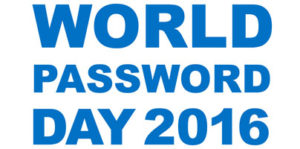World Password Day and Your Cyber Security
 World Password Day was yesterday. Ok, so we are a little late. But lets understand that a simple password that is easy to remember is also easy to break. Black people continue to be the least educated in the area of cyber security and the AACR is working to change that.
World Password Day was yesterday. Ok, so we are a little late. But lets understand that a simple password that is easy to remember is also easy to break. Black people continue to be the least educated in the area of cyber security and the AACR is working to change that.
You will eventually have to kiss your money and/or identity goodbye if you are using an easy to guess passwords. Now, for the record, let me show you how easy it is to guess your password. If you use your middle name, your dog, cat or pet’s name, the model or make of your pimped out ride, your mother or father’s name, your child’s name, your husband’s name, one of their birthday’s, your address, zip code or phone number your password is probably ripe for hacking. Why? Because a good hacker can get all that information from your Facebook page, your LinkedIn account, your Instagram account and your Twitter account. Its all there! Bottom line is if your password is stupid eventually it will cost you.
Here are few tip for securing your password.
- Complicate your passwords– Like I said; don’t use words like your pet’s name or anything that can be found on your Facebook page or Twitter account. Create random pass phrases. A pass phrase may start out like this “jimmyloveschocolateicecream”. But using numbers and special characters, you know like, $ @#%^&, etc., and it ends up looking like this “j1mmYloV3schocol@TeIcecre@m.”
- Use a password manager– We all have the aggravating problem of trying to remember multiple passwords. So to solve that problem use a password manager like LastPass and 1Password. You can find free password managers here. But to be honest password managers are not always totally secure. LastPass was acquired by LogMeIn. Unfortunately hackers stole the hints to users’ main passwords and the scrambled versions of those passwords. But a password manager is still safer than trying to remember your passwords on your own.
- Different accounts means different passwords– Hackers love lazy people. They know that if they can steal one of your passwords its probably the same for all your accounts. So don’t get robbed because your bank account password is the same as your Twitter account. Use a password manager and mix it up.
- Change your passwords every 90 days– Ok, maybe twice a year if you are lazy but change them. If you have had the same password for more than a year you are vulnerable.
- Make use of two factor authentication – Two factor log in systems allows you to make double sure your password is safe. Two factor log in means that you use one password for the site and then another password is generated and sent to you usually via a text message. Consider it a double lock for your accounts.
Now lets talk about a little cyber spring cleaning. Try to remember to treat you computer and Internet connection like you treat your home (1,2,3). Keep it clean, keep it safe and keep it secure. What does that mean?
Keep your computer clean by making sure you delete old software you no longer use, that includes games. Old software is a security vulnerability and hackers can use it against you. Make sure the software you are using is regularly updated. Most software can do their own automatic updates or remind you when they need updates.
Like the doors and windows of your home keep your computer and online accounts secure. Use secure pass phrases, change those pass phrases often and lock out strangers from your social media accounts. Remember don’t friend the friend of a friend. Hackers use that technique to get access to your Facebook page and personal information. If you don’t know them then don’t let them into your cyber world.
Keep your system safe by using a good anti-virus program. Make sure you don’t click on links or attachments that you are uncertain of. Make sure your home network and router is secure. Have you changed the password on your router? The default password that comes with the device can be found online and hackers know this and now so do you.






